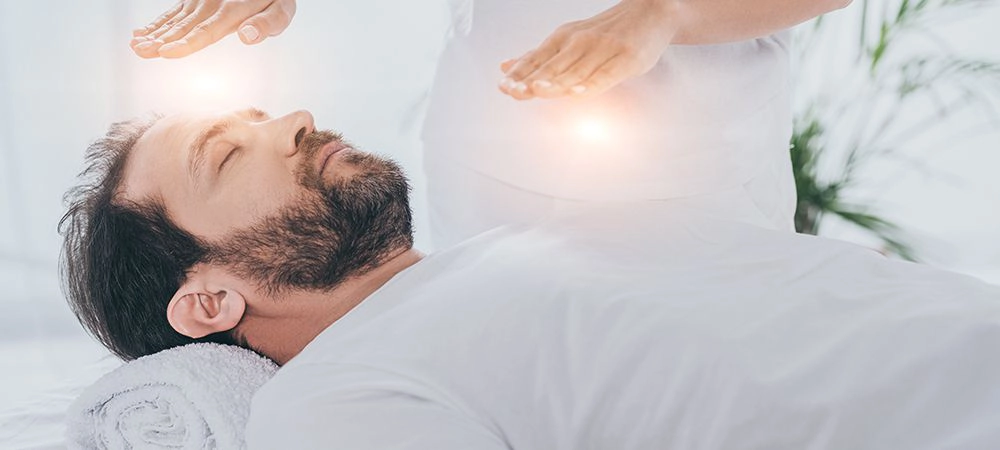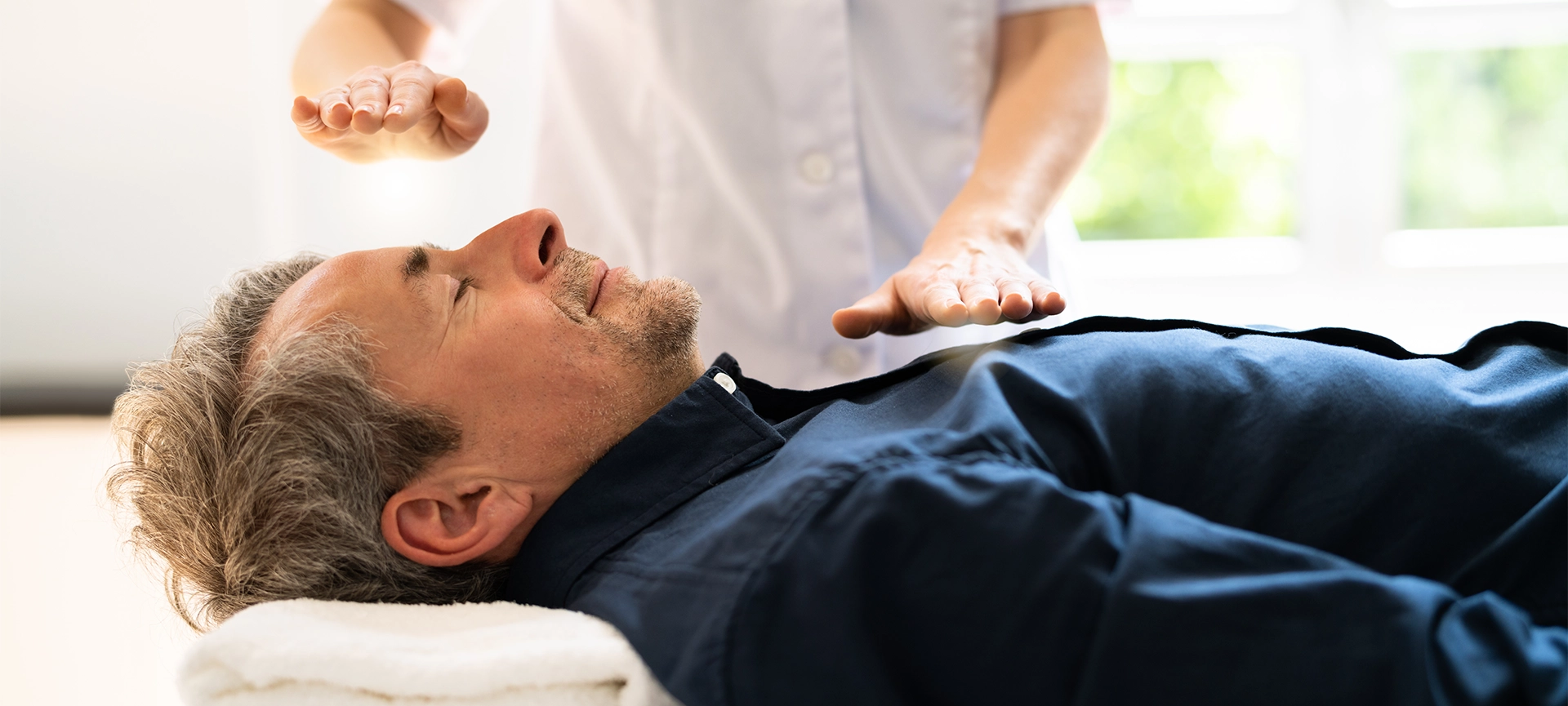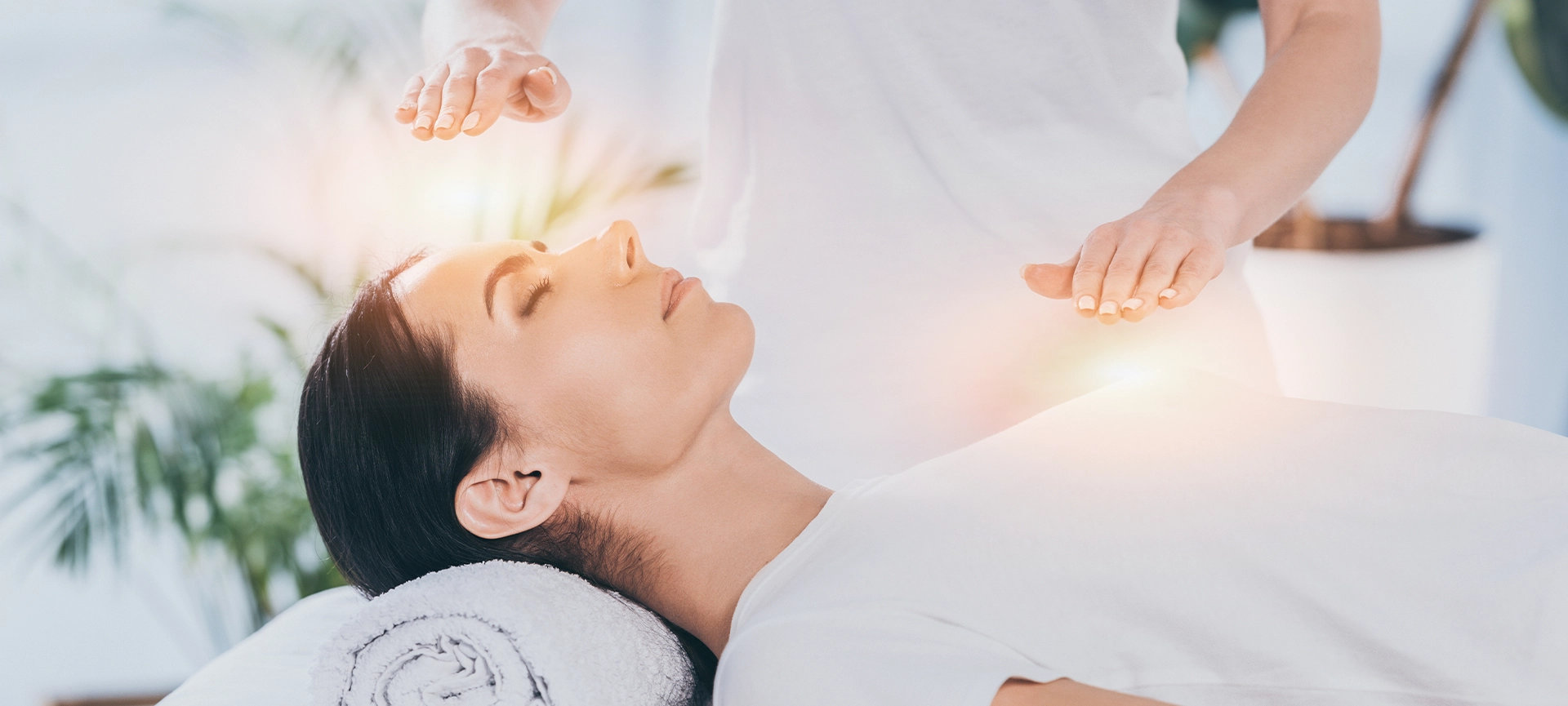How Does Reiki Work?
Our understanding of addiction has evolved a great deal over the last century, and addiction treatment has evolved along with it. We have moved on from the day when addiction rehab meant detox followed by a few sessions of talk therapy. It is increasingly recognized that successful addiction treatment involves a combination of methods tailored to the individual. The more variety there is in treatment methods, the greater the number of people who can be helped.
A fairly recent addition to the stable of addiction treatment methods is Reiki, a Japanese relaxation technique that reduces stress and promotes healing. It can be a highly effective treatment for people with addictions, especially when used in conjunction with other forms of therapy.
In this article, we will delve into exactly what Reiki is, what happens during a typical session, and who can benefit from it.
What Is Reiki?
The term “Reiki” is derived from the Japanese words rei, which means “universal” and ki, which means “life energy”. As this combination of words suggests, Reiki is a form of healing aimed at improving the flow of energy in the body. It is based on the idea that when our energy is blocked or low, we become ill, stressed or anxious. The goal is to restore the energy so that we can feel physically healthy and mentally fulfilled.
How Is Reiki Performed?
A typical Reiki session takes place with you, the patient, fully clothed on a comfortable chair or therapy table. The practitioner holds their hands lightly on or just above a part of your body, such as your head, abdomen, arm or leg. If you have an injury, or if part of your body is hurting, the practitioner may focus on that area.
While the practitioner’s hands are in that position, a transfer of energy takes place between the practitioner and the patient. Some practitioners report that they feel a warm or tingling sensation in their hands during this process. They will hold this position until that sensation passes – typically this takes anywhere from three to ten minutes – before moving on to the next area.
Many Reiki practitioners make use of the chakra system to identify the areas that need work. Chakras are energy centres in our bodies that correspond to our major functions and organs. If a chakra is open, the energy is flowing freely. If not, you may experience symptoms relating to that chakra.
The seven main chakras are as follows (locations are in parentheses):
- Root chakra (base of the spine): Responsible for your sense of stability and security
- Sacral chakra (below the navel): Responsible for sexual and creative energy, as well as how well you connect with emotion
- Solar plexus chakra (stomach area): Responsible for confidence, self-esteem, and the sense of being in control
- Heart chakra (centre of the chest): Responsible for our sense of love and compassion
- Throat chakra (throat): Responsible for verbal communication
- Third eye chakra (between the eyes): Responsible for intuition and imagination
- Crown chakra (top of the head): Responsible for spirituality and your sense of purpose
Is There A Spiritual Or Religious Element To Reiki?
Reiki does not have a religious component to it. There is no dogma, and no requirement on the part of practitioners or patients to have a specific system of beliefs. It is quite spiritual in nature, though, and some people do find that it puts them in closer touch with the teachings of their religion.
According to Reiki principles, treatment can only be truly successful if the patient lives their life in a way that promotes healing and harmony. In other words, healing does not only take place during the sessions. It is an ongoing process that is strengthened – or compromised – by the way in which we act in our daily lives.
Who Can Benefit From Reiki?

A growing body of anecdotal evidence suggests that Reiki can reduce stress in people who are experiencing physical and mental illnesses such as:
- Cancer
- Heart disease
- Depression and/or anxiety
- Fertility difficulties
- Crohn’s disease
- Chronic pain and/or fatigue
- Some neurodegenerative conditions
It is important to note that Reiki practitioners do not endorse patients giving up essential medical treatments in favour of Reiki. Instead, Reiki should be used alongside those treatments. The soothing nature of the treatments and the increased levels of positive energy that they bring can aid in recovery. By having a treatment team that includes your medical provider and your Reiki therapist, you can derive maximum benefit from both modes of treatment.
The Role Of Reiki In Addiction Treatment
Addiction is a complex condition that affects the body and mind in many ways. Reiki can provide many benefits to people who are in addiction treatment programs. These benefits include the following:
- Relief of physical and mental stress and tension
- Easing of pain and discomfort
- Improved sleep and relaxation
- A better sense of connection with yourself and others
- A greater sense of control over your own life and destiny
- Improved outcomes in the treatment of physical and mental health conditions
Any addiction treatment program worth its salt follows a holistic approach that is tailored to each individual. For many people, Reiki is the element that ties together the other components of treatment. An added benefit is that with the increasing use of Reiki, people in most locations can find a practitioner in their area, enabling them to continue treatments after their addiction treatment has come to an end. For many people in addiction recovery, Reiki becomes an ongoing part of a regular lifestyle.
Getting Help For Substance Abuse Disorders
Addiction Rehab Toronto offers comprehensive treatment for people with all kinds of substance use disorders. Whether you have recognized early on that you have an addiction problem, or you have been addicted for years, we can offer you a safe, healing environment and addiction treatment providers who have extensive training and experience, and most importantly, all the compassion in the world. It is not our goal to get rich off of vulnerable people. It is our goal to provide quality treatment that brings positive changes to as many lives as possible. For more information, or to reserve your spot, contact us today.







